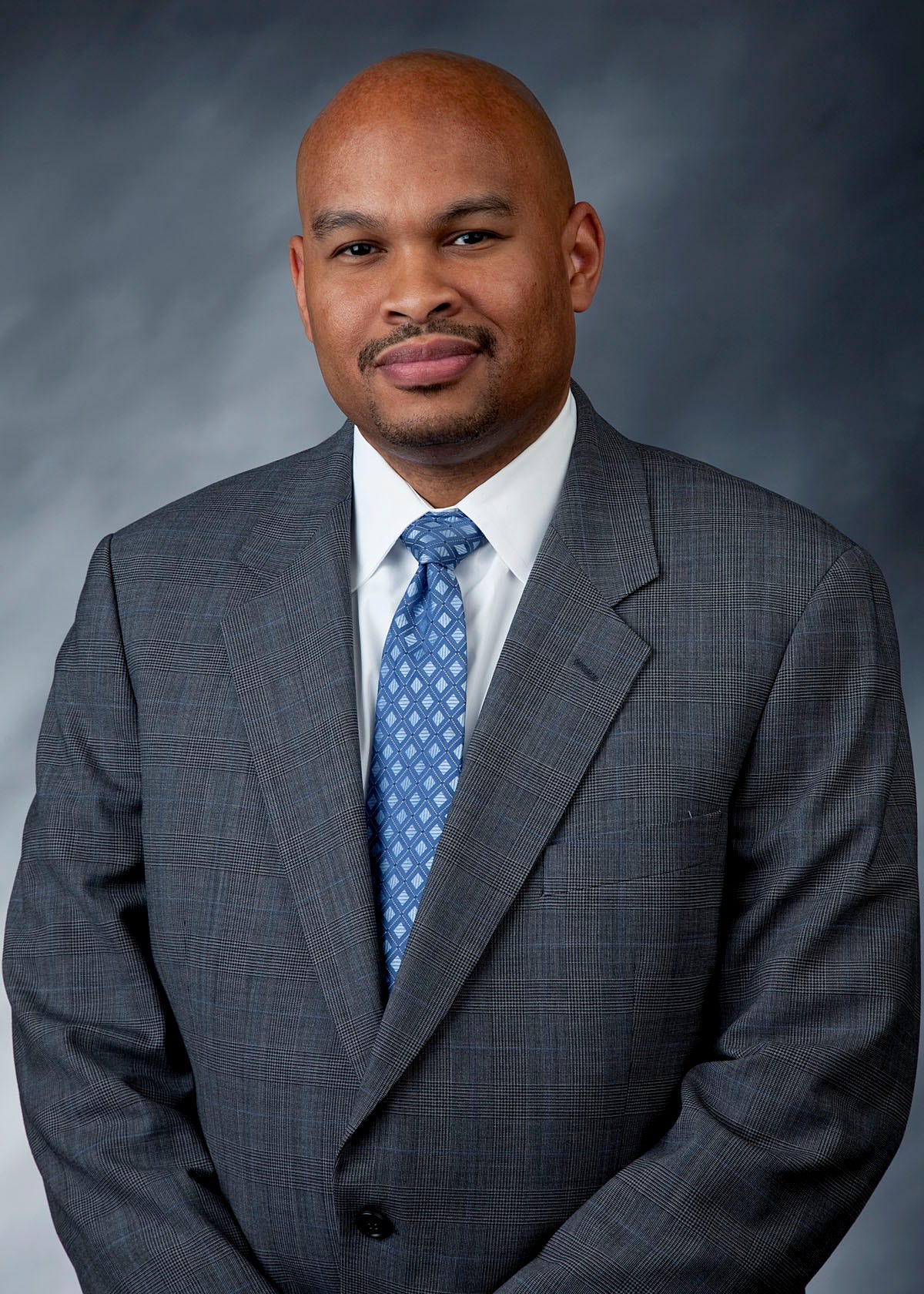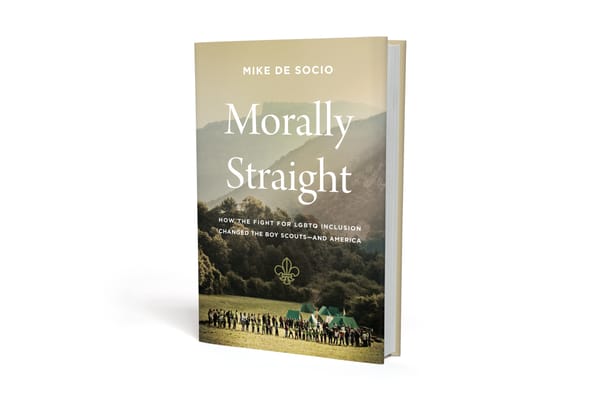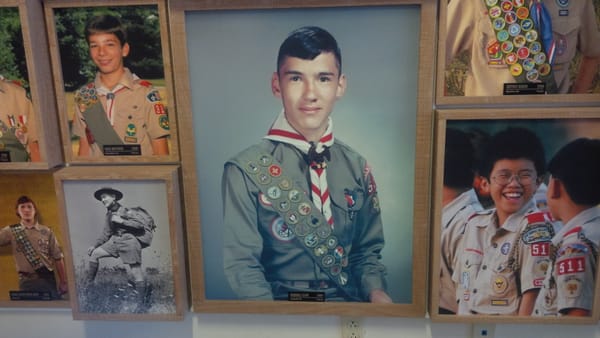A conversation with Garfield Murden, national director of Scouts BSA
"Don't give up on us. Remember why it is that you joined the program. Help out in any way that you feel possible. There are many youth that need the support."
Garfield Murden has spent his entire career in the Boy Scouts of America.
After growing up as a scout in Brooklyn, and earning the rank of eagle scout, he graduated college and took a job with the Greater New York Council. He held many different positions there, in both program and development roles, before joining the Cradle of Liberty Council in Philadelphia. He eventually worked his way up to the director of field service at the Chicago Area Council, before being recruited to the National Service Center in 2008. He now serves as the national director of Scouts BSA.
I spoke with Murden about his decades of experience in diversity, equity and inclusion work, and where he hopes Scouts BSA will go from here.
This interview has been edited and condensed for clarity.

Mike De Socio: Throughout your Scouting career, you’ve been advocating for African American membership and representation. What does that work look like?
Garfield Murden: Well, I would say that from the advocating standpoint, initially, I always said to myself, that I need to be a strong representation of my ethnicity. Meaning that I need to do the best that I can to represent myself, and to represent my heritage and culture. And I did that from working in some of our hard-to-serve communities as being a role model, from the standpoint of just being an African American executive, to going to opportunities to speak in the community if it was available. And just being able to talk to kids on how they need to present themselves. And I've been blessed to be able to continue to do so.
From the executive standpoint in our in our organization, I tried to do my best to be to be known. Because in our community as executives in Boy Scouts of America, there are not too many African Americans that are in key leadership roles. So anytime that there's an opportunity to represent, I tried to take advantage of that, and help out other executives that are coming behind me. And I will tell you that there have been, I've been blessed in this program by being mentored by a lot of strong African American executives, also. There have been many people before me and that took me under their wing and guided me and they still do, and I think it's something that I need to do and to work with other young executives and do the same.
A lot of your current work with Scouts BSA is around making the program, and especially camp environments, more welcoming. How are you trying to achieve that?
What our organization is doing, is we are looking at how we represent ourselves, when I say how we represent ourselves, meaning how we as an organization are looked upon in our communities. And if there are things that are offensive, how do we go about making those changes? If there are things that that are positive, how do we promote? The things that are negative, how do you go about changing it? We're looking at things such as names of camps. We're looking at just all different aspects of being more welcoming to our families, our new families that are joining our program, and … our young ladies that are now becoming members of Scouts BSA. And from that aspect, we're making sure that we train our staff at camp to be better prepared, and to identify the challenges that some of our young ladies might be facing when they attend our summer camps for the first time, when there are male troops that are present and vice versa. We need to educate our male troops too, to be more inviting, be more encouraging, to be more supportive. So those are some of the things that our organization is doing.
From a Scouts BSA aspect, we're making sure that literature — materials that we create— is inviting, is engaging. And if there's things that we can look at changing from the positive to be more welcoming, we are looking to make those changes. It's a culture change is really what it comes down to, and sometimes it takes a little longer than we would like, but we know as scouts and scouters, we rise up to the challenge.
Adult leaders play a big role in shaping the perspective and behavior of youth. How is that challenging when it comes to culture change?
I would say that one of the things that we're trying to do from our DEI training, and from the introduction of the DEI merit badge, we're looking at it from twofold. One, we are reinforcing the impact our scout leaders have on youth. And in doing so we need to make sure that our leaders have a positive attitude when they work with their youth. And a positive attitude in reference to their surroundings, because our youth are looking up to our leaders. And if we have leaders that are very negative, and talk in a negative tone, in reference to anybody, it can be carried down to the youth.
So it's important that we educate, to reinforce to our leaders, that they have to be positive, that they have to have a scout-like attitude, that they have to remember why it is that they became leaders, and what is the purpose of the scouting program, and how it is that they impact youth. On the other hand, we have to educate our youth to make sure that they understand that they are our future. And they need to be prepared to interact, to engage, to support everybody and anyone.
Do you have a general sense of what the response has been to those trainings for adults lately?
Well, I will say that it has been positive from the standpoint of our leaders. I will say that you do have some that say we don't go far enough. But we are, I don't want to say that we're late to the game, but we're trying our best to step up to the plate, to do what we've always done at being leaders and the leaders in society in general. So we have a long way to go. And we're trying our best, and we have a DEI team, we have a vice president that's responsible for DEI, who's working to make sure that as an organization, we're stepping up to the plate to do our part. Like I said, we still have a long way to go. But I believe in my heart that we're moving to the right direction.
It's interesting to hear you say that, some people say you're not going far enough. And some people say you're going too far. How do you think about threading that needle in these programs?
I say to so many people, our society has changed. And our society has changed, and to a certain degree, our society has gone astray. And I believe our society needs organizations to step up to the plate to say, hey, the way that we treat others in a negative light is not right. We have to treat everybody fairly, we have to do the right thing. We are the Boy Scouts of America, which consists of creating leaders. And if we are going to be the creator of leaders, we have to lead. And in doing so, we have to do what needs to be done. And sometimes doing what needs to be done can be looked upon in a negative light by many. But when it's all said and done, as a leader, you have to go and say, you know what? There might be naysayers. There might be those that disagree with us. But the bottom line is this: we know what is right. And we're doing what we can to do what's right. And we know that all people should be treated fairly and all people should be treated equally and given respect, because that is our principal philosophy for years. So if you disagree with that philosophy of treating people fairly and giving people respect, it might not be the program for you. Because we want to respect everyone. And we want to treat everybody with respect.
What is your vision for Scouting’s continued acceptance and support of the LGBTQ+ community?
My own personal opinion, as being a person that has family members that are members of the LGBTQ community, is that I have skin in the game. Meaning that I want all people to be treated fairly and given respect. And I believe that it is the Christian thing to do. And I believe it's the right thing to do. I believe that we need to do what is right. And I believe that what we've been doing in the Scouts BSA program is making sure that the tools that we produce, from printed materials, to manuals and resources from the handbook, that it is represented in a light that, everyone and anyone can look at the materials and say, I can see myself there.
It's great to hear that you're doing a lot proactively now. Do you think that, in order to move forward, that the BSA owes the LGBTQ+ community a formal apology of some kind?
I believe that the Boy Scouts of America can apologize by being supportive of the LGBT community, which we are starting to do, and like I said, it's been a slow process. To say, should the Boy Scouts of America do a formal apology? I mean, is that impactful? I would probably say no. It's like saying as an African American, does the Boy Scouts of America need to do a formal apology to African Americans, for not allowing them to join the program until later on? A formal apology is not going to make a difference. I think that what the Boy Scouts of America did to the African American community, to the Hispanic community, to the Native American community and to women in general, is being more open and more inclusive, and “showing” carries a lot more weight than a formal apology. A formal apology does not, in my opinion, carry the weight. It's more of, you show me that you're doing the right thing, as compared to telling me or just putting something out in words.
So you're basically saying that actions speak louder than words on this.
Exactly. Yes. And that is what we are doing right now. We are making a conscious effort to make change, and we're showing that we are improving.
Is there anything else you want to mention?
Well, I would say that our organization is trying to do right by all communities, and by all ethnicities. And unfortunately, some will agree and some will disagree in the way that we're going about doing it. So I would like the community to know that we're trying, that it's not falling on deaf ears. It's not as if that we're not listening. We are listening. And we're trying. It's slow. But we can do better. I mean, we're definitely not stopping and saying, okay, we're going to do this one thing ... We're constantly moving, we're constantly pushing. And I would say that for your readers, don't give up on us. Remember why it is that you joined the program. Help out in any way that you feel possible. There are many youth that need the support.
We need to do better. And it's not just [our] problem, we need to be better as a society. But I will tell you that the Boy Scouts of America is trying to do its part. We got a long way to go. We got a long way to go with all the things that's going on in our world. And in society right now, we're so polarized. And sometimes it feels like you're pushing a boulder up a hill while walking in grease. But I hope that I'm around to see the full change and the impacts that I've been working on, and the foundation that I've been planting will expand and touch as many lives as possible.


